
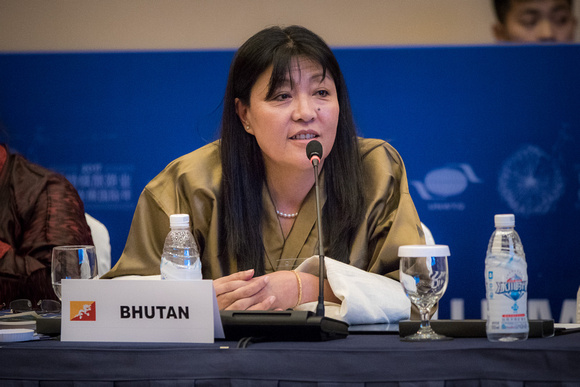
UNWTO Regional Commission South Asia in Pictures
Photos by Christian del Rosario:
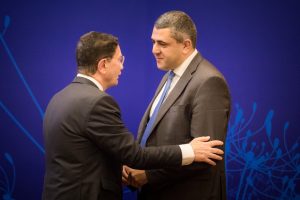
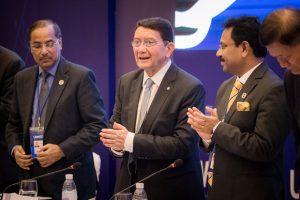
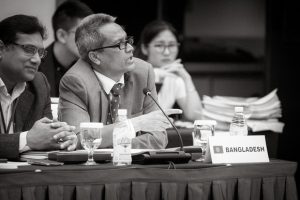

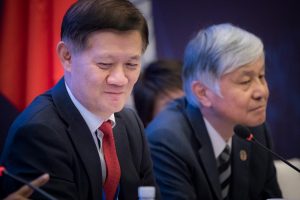
www.ChristianDelRosario.com
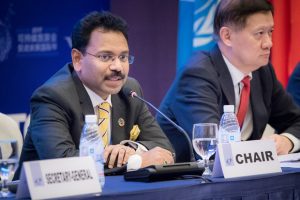
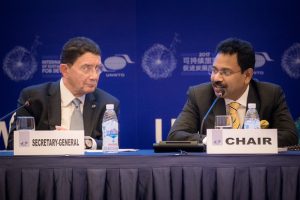
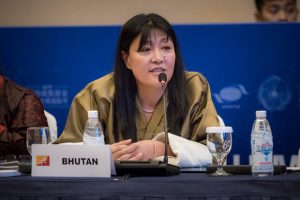
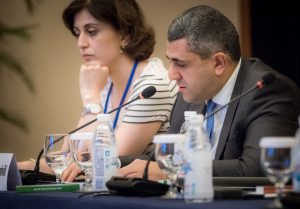
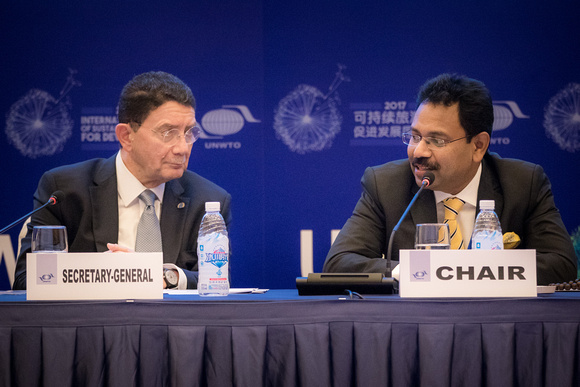
UNWTO General Assembly Kicks Off
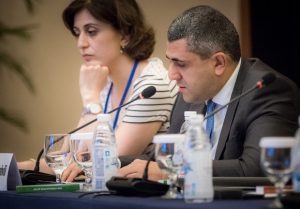
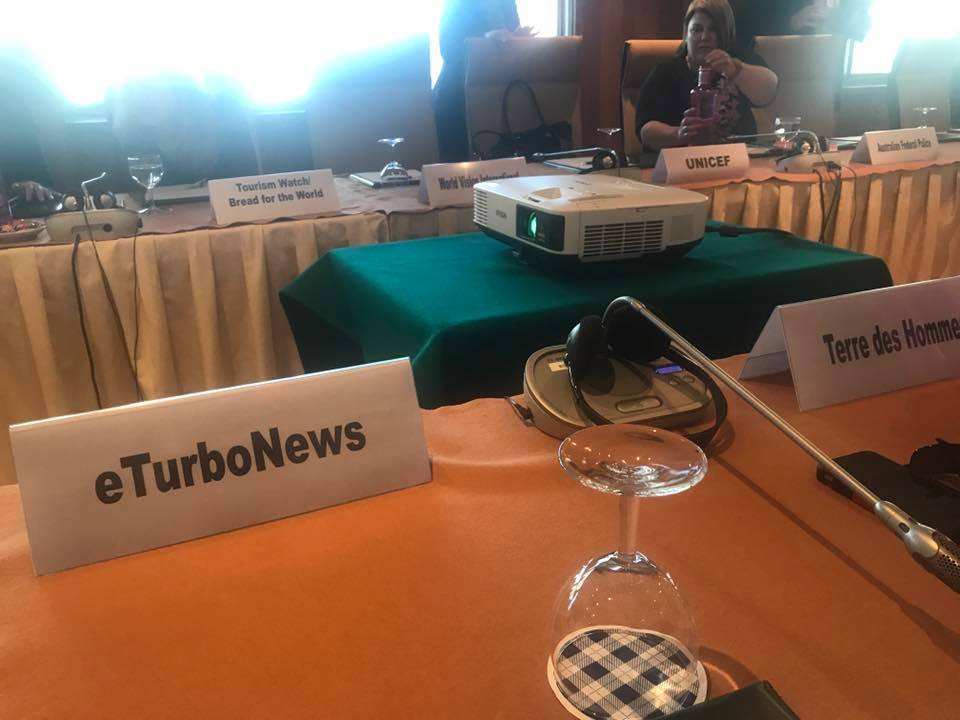
Publisher Calls it Time Out – looking forward to UNWTO’s General Assembly
The letter reads:

Palestine Application for full UNWTO membership: Money talks for Israels fight to stop this
Many think tourism is something Israel and Palestine are agreeing on and tourism is a peace industry – are they correct?
Besides the confirmation hearing for the next UNWTO Secretary General, another important decision for the upcoming General Assembly is the application by the Palestinian Authority’s Ministry of Tourism for a full membership into UNWTO. The application for Palestine was submitted last year. The full General Assembly has to agree with a two third majority to accept Palestine as a new country to join the organization.
The full General Assembly is getting together in Chengdu, China next week. Palestine became a full member of UNESCO in 2011.
Tourism is an important revenue channel for Palestine and also Israel. However, Israel is indirectly in control of Palestine tourism since all international borders are controlled by the Jewish State. The UNWTO “human right for tourists to travel” does not always apply when it comes to visiting Palestine, and having to deal with Israel’s rules.
From time to time, Israel puts more restrictions on tourism to Palestine, including disallowing western visitors to re-enter Israel when staying in a hotel in Palestine.
However, in the past cooperation between Palestine and Israel was an important and successful activity, and organizations including the International Institute for Peace Through Tourism and its founder Louis D’Amore had worked tirelessly for decades to make both Israel and Palestine understand the importance of tourism and peace. Louis d’Amore will be attending the UNWTO General Assembly in Chengdu next week.
The Israel Foreign Ministry’s spokesman said that Israel’s position is that the “State Of Palestine” does not exist, and therefore it cannot be accepted as a state in the UN or in any of its affiliated organizations.
Israel, of course, knows money always talks, and diplomatic pressure has been put on Taleb Rifai, the current Jordanian Secretary General to disallow Palestine’s move.
Money talks and Israel’s foreign ministry threatened: Granting state membership to the Palestinians will lead to a greater politicization of the organization and a cut in funding. Furthermore, the Jewish State continues its pressure on UWNTO member states saying: “We are not expecting any negative impact on Israel or its continued activity in the organization – the expected damage will be to the organization itself.”
Israel has taken all diplomatic measures to block the request,” an Israel Foreign Ministry spokesman told the Jerusalem Post.
The United States of America is not a member of UNWTO, but Israel Israel has also involved the Americans, who have warned the Palestinians that their joining the organization could have consequences in their relations with the US.
The application for Palestine is expected to be confirmed, especially since countries who could be counted on to support Israel and vote against the move – such as the US, Canada, the U.K.and Australia – are not members of the UNWTO.
Having Palestine as a full voting member of this global community could be an important step forward to secure peace and expand on tourism making the occupied territory seen less occupied and more independent.
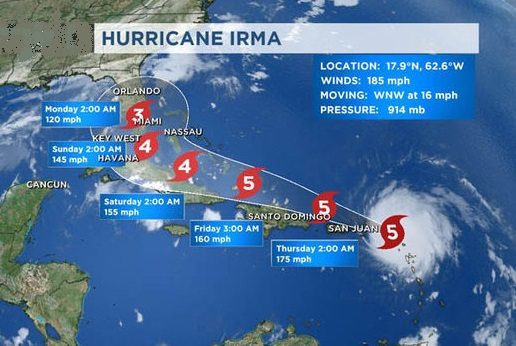
UNWTO Taleb Rifai calls emergency meeting at General Assembly
It has been a tough week for World Tourism and the challenges are still developing. Taleb Rifai, Secretary General of the World Tourism Organization will take an opportunity when welcoming more than 1000 top tourism officials to Chengdu, China next week and called for an emergency meeting to discuss the impact of recent Hurricanes to the travel and tourism industry and the future of tourism Caribbean member nations.
Rifai took an excellent opportunity and shined as a very much respected leader of world tourism and showed immediate action. He is doing what leaders in his position are expected to do – he leads.
Encouraged by the Head of the ST-EP Foundation, Ambassador Dho Young-shim from Korea (former UNWTO Secretary General Candiate), who brought up an initiative to reach out to UNWTO members in the Caribbean in response to Hurricane Irma, today UNWTO Secretary General Taleb Rifai who is believed to be in Korea issued this statement:
“UNWTO is deeply saddened by the tragic effects brought by Hurricane Irma across the Caribbean
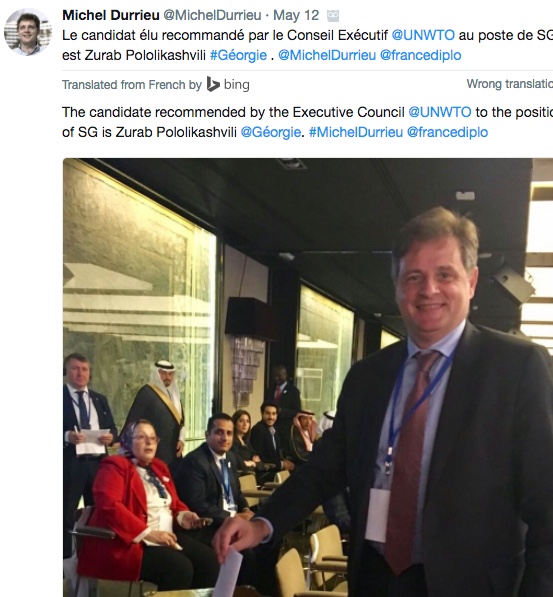
French UNWTO Delegate: More UNWTO Election News


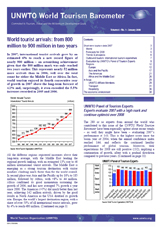
International tourism – strongest half-year results since 2010
Destinations worldwide welcomed 598 million international tourists in the first six months of 2017, some 36 million more than in the same period of 2016. At 6%, growth was well above the trend of recent years, making the current January-June period the strongest half-year since 2010.
Visitor numbers reported by destinations around the world reflect strong demand for international travel in the first half of 2017, according to the latest UNWTO World Tourism Barometer. Worldwide, international tourist arrivals (overnight visitors) increased by 6% compared to the same six-month period last year, well above the sustained and consistent trend.
Results are underpinned by robust growth in many destinations and a continuation of the recovery in those that suffered declines in previous years. Of UNWTO regions, growth was strongest in the Middle East (+9%), Europe (+8%) and Africa (+8%), followed by Asia and the Pacific (+6%) and the Americas (+3%).
The first half of the year usually accounts for about 46% of total annual international arrivals, with the second half longer by three days and including the Northern Hemisphere high season months of July and August.
“The first half of 2017 shows healthy growth in an increasingly dynamic and resilient tourism market, including a strong recovery in some of the destinations impacted by security challenges last year”, said UNWTO Secretary-General Taleb Rifai ahead of the 22nd session of the UNWTO General Assembly, to be held in Chengdu, China on 13-16 September 2017.
“As explained in my article ‘Tourism: growth is not the enemy; it’s how we manage it that counts’, international travel creates jobs, economic growth and development opportunities for many communities around the world. But this source of prosperity needs to be managed efficiently, for the good of visitors and host communities alike. This year we celebrate the International Year of Sustainable Tourism for Development (IY2017) to remind destinations and travellers that we must work for a sustainable tourism sector that protects the environment, preserves the cultural heritage of destinations, and fosters respect for local communities everywhere,” Rifai added.
Mediterranean destinations lead growth
Mediterranean destinations reported particularly strong growth in the first half of 2017, as reflected in the results for Southern and Mediterranean Europe (+12%), North Africa (+16%) and the Middle East (+9%). This trend is driven by the continued strength of many destinations in the area, combined with a significant rebound in destinations that suffered decreases in previous years, such as Turkey, Egypt and Tunisia.
Furthermore, international tourist arrivals through June grew 8% in Northern Europe, 6% in Western Europe and 4% in Central and Eastern Europe. Sub-Saharan Africa recorded 4% more arrivals.
South Asia (+12%) led growth in Asia and the Pacific, followed by Oceania (+8%) and South-East Asia (+7%), while results in North-East Asia (+4%) were more mixed.
The Americas continued to enjoy positive results across most destinations. Growth was solid in South America (+6%), Central America (+5%) and the Caribbean (+4%). In North America (+2%), robust results for Mexico and Canada were partly offset by a decrease in arrivals to the United States, the region’s largest destination.
Arrivals growth in this period was fuelled by strong outbound demand from major source markets. In particular, Canada, China, France, the Republic of Korea, Spain, the United Kingdom and the United States continued to report solid growth in outbound expenditure. This first half-year also saw a strong recovery in demand from Brazil.
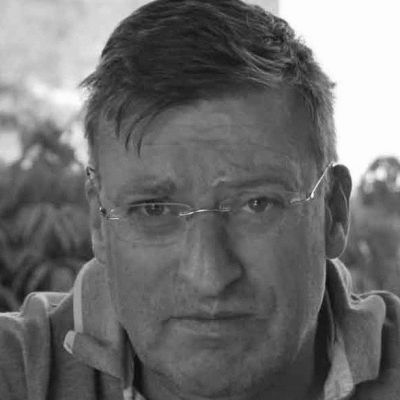
Threats from Georgia: German investigative editor urges delegations to reject Zurab Pololikashvil for UNWTO SG
After claiming he received death threats from Georgia, Frank Tetzel, Editor in Chief for Fair-Economics, a leading German publication based in Berlin today urged delegations attending the UNWTO General Assembly in China next week to vote NO for the UNWTO Secretary-General Elect Pololikashvil confirmation. Frank Tetzel is also an investigative reporter for the German Edition of Huffington Post.
Tetzel today issued an open letter addressing all UNWTO delegates. Does his opinion piece make a strong case for not ratifying proposed Secretary-General Elect, Zurab Polikashivil?
Specifically, Tetzel, a citizen of Germany, is addressing the German delegation to the UNWTO General assembly and German tourism politicians, to raise awareness of the insidious election manipulation Georgia is continuing to engage in to ensure their candidate is confirmed next week at the General Assembly in Chengdu.
As part of the German free press, Tetzel has performed extensive due diligence on the Georgia candidate as part of the background for articles related to the UNWTO Secretary-General election. Tetzel has received extraordinary personal attention with multiple threats from individuals in Georgia, hoping to discourage his pursuit to learn more about Polikashivili and his past.
Tetzel’s article and the open letter was published today in Fair Economics and The Huffington Post.
TRANSLATION: Dear Members of the German Economic Ministry of Tourism, and Delegates of the UNWTO General Assembly:
Before the end of the current session of the German parliament, I want to share a concern, that in my view, is an urgent matter that needs immediate attention and action.
I would like to ask you to urge our representative at the tourism unit to make the right decision related to the election for the UNWTO Secretary-General and confirmation for Zurab Pololikashvili,. This is not a campaign, but the issue is for Germany to remain believable in a UN agency. Let me explain what has happened.
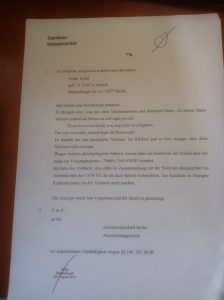
I was threatened via phone calls numerous times with this message: “If you love your family you better stop with the investigation.” The caller ID showed a number in the country of Georgia. The caller repeated this demand several times before disconnecting.
When I tried to call this number back I was told in English and Georgian language, that the number was not in service. I have filed two criminal complaints against “unknown” with the Berlin Police and with the Berlin prosecutors office.
I suggested to German authorities this threat may be in connection with my research on the UNWTO Secretary General election process for Zurab Pololikashvili, during the 105th UNWTO Executive Council in Madrid in last May. I have published a number of articles in Fair Economics and HuffPost to disclose irregularities related to this election. I discussed this issue with politicians and have tried to investigate further.
My research on the designated Secretary-General, Zurab Pololikashvili,, has produced remarkable facts and inconsistencies which have since been documented. For example, on the Internet, there is no evidence of a past of the candidate, almost as if the Internet had been cleansed of the past life of the designated UNWTO Secretary General. Neither his role in the management of TBC Bank, one of the largest Georgian banks, nor his ministerial work or CEO of Dynamo Tiflis, has any trace of this man. In the international digital age, it is very curious, as if the prior life of the nominee from Georgia was erased.
It very much appears his government did a great job hiding his identity in cyberspace.
The current UNWTO Secretary-General, Taleb Rifai, brought up a good point when he was holding a press conference after the election on May 12 in Madrid. Rifai said: “Its member states that vote for a candidate.” Left unsaid was qualifications are secondary.
It seems this election is about political deal making. A member of the Georgian delegation in Madrid confirmed the highest priority for Georgian politics (unrelated to tourism) is to get, finally, the Secretary-General position of the UNWTO. For this, the candidate’s government has worked hard. They will continue putting pressure on voting delegates. The support indicated by the expected visit of Giorgi Kwirikaschwili at the General assembly applies, even more, pressure and shows their need for a confirmation to be important.
Of course, every government, including Georgia, has the right to nominate one of their own for the leading job at UNWTO. However, inviting voting delegates during the May election meeting to a sold out to championship football game is not appropriate.
The manipulations in Madrid are nothing short of scandalous, and it seems to be covered up. Perhaps the invitations to the football game by the Georgian embassy are considered “peanuts” for some, but it’s not ethical to invite voting figures to attend this game with a candidate and compliments by a candidate who is lobbying the same people to vote for him the next day. Delegates should not have been on the list of invited guests. This wouldn’t happen in Germany and other civilized western countries.
The football game has a high level of entertainment and attending this game could not have had a connection to any business discussion or business meeting. Because those invited are the top decision makers and voters, the shadow of being “bought” and the willingness to “sell” a vote is transparent. If this was happening in the private industry any compliance manager would have a serious problem with the issue.
Different from other UN agencies, UNWTO includes a good number of private stakeholders or associate members. Compliance managers for those associate members may have to urge boards to cancel their membership in UNWTO. The action UNWTO Executive Council members showed is contrary to the legal understanding of how this organization should function. In private companie, executives would have been fired or prosecuted criminally in far fewer circumstances.
One of the fundamental tasks of UNWTO is the implementation of the Global Ethics Code for Tourism. All members at the UN agency are supporting this. Ethics and getting the authority to function as a Secretary General without such ethics. This question must be asked to the proposed Secretary- General elect Zurab Polikashvili. How could any delegate justify to vote for such a man?
In the past, I have had very few career links with UNWTO. I am a journalist who often reports about sustainability and international cooperation issues. I became interested in UNWTO because of the sustainable year for tourism.
Why would I get involved in the UNWTO election process? First of all, my family and I were threatened. These are criminal acts. Secondly, I, therefore, decided to not only be a chronicler or journalist but one with an opinion.
What I have experienced in the last few weeks has made me doubt UNWTO. The representatives at the General Assembly in Chengdu should decide if they want a “continue like usual” or if they want a new beginning. Without credibility, competence in tourism and a willingness for reform, this agency will no longer be taken seriously in the future.
Therefore, may I ask you personally to respond with an appropriate NON-approval vote for Georgia’s candidate, from our country (Germany) at the General Assembly in Chengdu, China.
Sincerely
Frank Tetzel
Editor in chief Fair Economics
From the WorldTourismWire Editor: It’s not proven any alleged threats Mr. Tetzel received from Georgia can be linked to the UNWTO nominee or even to Georgia. All other issues raised including the football game had been reported by this publication numerous times. In a survey, 91% of responding WorldTourismWire readers thought attending the football game was equal to receiving a bribe in exchange for a vote.
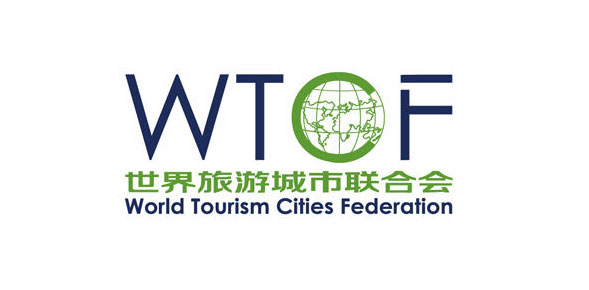
The World Tourism Organization joins forces with the World Tourism Cities Federation
As tourism has become a powerful engine for the local economic and social development of cities, the World Tourism Organization (UNWTO) has partnered with the World Tourism Cities Federation (WTCF) to develop an instrument that can measure the performance of the sector in metropolitan areas. Under the title ‘UNWTO-WTCF City Tourism Performance Research’ the project will include a set of criteria and a platform for information.
According to UN Habitat (2050, 70% of the world’s population is expected to be living in cities. By 2025, metropolitan areas will contribute over 30 trillion US dollars annually to the world economy. As tourism currently accounts as a central component in the economic, social and geographical development of many cities it is essential to monitor tourism performance in urban destinations and clearly address the areas for improvement. As stated by UNWTO Secretary General Taleb Rifai, “city tourism should go hand by hand with sustainable development; preserving environmental treasures together with tangible and intangible heritage should be parallel to the importance of engaging local communities”.
The partnership between UNWTO and WTCF to measure city tourism will assist policy makers and all stakeholders in their efforts to take strategic action for better urban tourism governance and sustainable management.
The project includes research on City Tourism Performance collecting information about the existing systems to measure city tourism performance worldwide. A total of 16 cities located in Asia, Africa, Europe and Latin American participated in the survey. The exercise will allow to define a set of criteria that can constitute the best possible assessment of city tourism performance at a reasonable cost.
“Cities provide an important vehicle for world tourism development. Launched in 2015, the UNWTO-WTCF City Tourism Performance Research Programme has conducted a comprehensive analysis of 16 tourism cities in the world in the five areas: destination management, economic perspective, social and cultural perspectives, environmental perspective as well as technology & new business models. The findings offer very useful guidance for promoting sustainable development in cities around the world,” said the Secretary General of WTCF, Song Yu.
Applying the UNWTO-WTCF City Tourism Performance Research Survey requires involving different stakeholders’ groups. Data is collected at the city level by the tourism experts identified by UNWTO and WTCF. Some of the performance criteria can be collected from the official data sources from cities such as Census and household surveys although expert interviews are necessary to have a more in-depth understanding of each city.
The detailed survey, used by the experts, provides a detailed description of all performance criteria and includes a data collection sheet and a questionnaire tailor-made for interviews with representatives of the main stakeholder groups.
The results of the research conducted in the Asia-Pacific Region were presented last weekend in Tianjin, China and later this month on 26 September in Buenos Aires, Argentina a second workshop will discuss the results of the Latin American cities, aiming to create a platform to give recommendations to those cities on the selected key performance areas and to give general indications to all cities on recent challenges in urban tourism.
The 16 different city cases will be compiled in a publication free of charge on the UNWTO website which will serve as a guideline on how cities can improve their future implementation of tourism development.

UNWTO & WTM Ministers’ Summit to Debate the so called ‘overtourism’
The UNWTO & WTM Ministers’ Summit will debate the so-called ‘overtourism’ at WTM London on Tuesday 7 November 2017.
The so called ‘Overtourism’ has become a hot topic in the news in recent months, with reports from around the world speaking of ‘tourism-phobia’ and showing pictures of citizens protesting against the ‘invasion of tourists’ and the expulsion of locals by tourism businesses.
“Managing the growing number of visitors to many popular areas of our planet, including cities, is crucial for both hosts and visitors, both international and domestic. Growth is not the enemy. Growing numbers are not the enemy. Growth is the eternal story of mankind. Tourism growth can and should lead to economic prosperity, jobs and resources to fund environmental protection and cultural preservation, as well as community development and progress needs, which would otherwise not be available. Yet ensuring that tourism is an enriching experience for visitors and hosts alike, demands strong, sustainable tourism policies, practices, and the engagement of national ,as well as local governments and administrations, private sector companies, local communities and tourists themselves.” said UNWTO Secretary-General, Taleb Rifai.
The topic will also be the key theme of World Responsible Tourism Day – the largest day of responsible tourism action in the world – on Wednesday 8 November, and will feature throughout the responsible tourism programme across all three day of WTM London.
More than 1.2 billion international tourists crossed the globe in 2016 and this is expected to grow to 1.8 billion by 2030. Tourism generates 10% of the world’s gross domestic product, is responsible for one in every 10 jobs and 30% of world trade in services making it central to many countries’ economies and people’s livelihoods.
Furthermore, 2017 is the United Nation’s International Year of Sustainable Tourism for Development. Sustainable tourism sector is one that promotes environmental preservation and protection of tangible and intangible cultural heritage and promotes the engagement, commitment band respect for local communities.
The Summit will discuss how managing the growth of visitors to many popular destinations is critical for both hosts and visitors. It will look at how tourism growth and sustainability can and should go hand in hand.
WTM London, Senior Director, Simon Press, said: “the so called ‘Overtourism’ is the key issue in the industry at the moment, so it is right that ministers and senior private sector leaders debate the topic as part of the UNWTO & WTM Ministers’ Summit.
“In previous years, the summits have offered insights into issues such as terrorism, crisis management, seamless travel, social media, branding and the legacy of ‘mega-events’ such as the World Cup and Olympics.
“This year’s summit will discuss the so called overtourism the impact it is having on both tourists, destinations and local residents and look for solutions to help minimize the problem.
“WTM London is the only forum offering so many ministers alongside senior industry leaders discuss the big issues affecting the global tourism business.”
